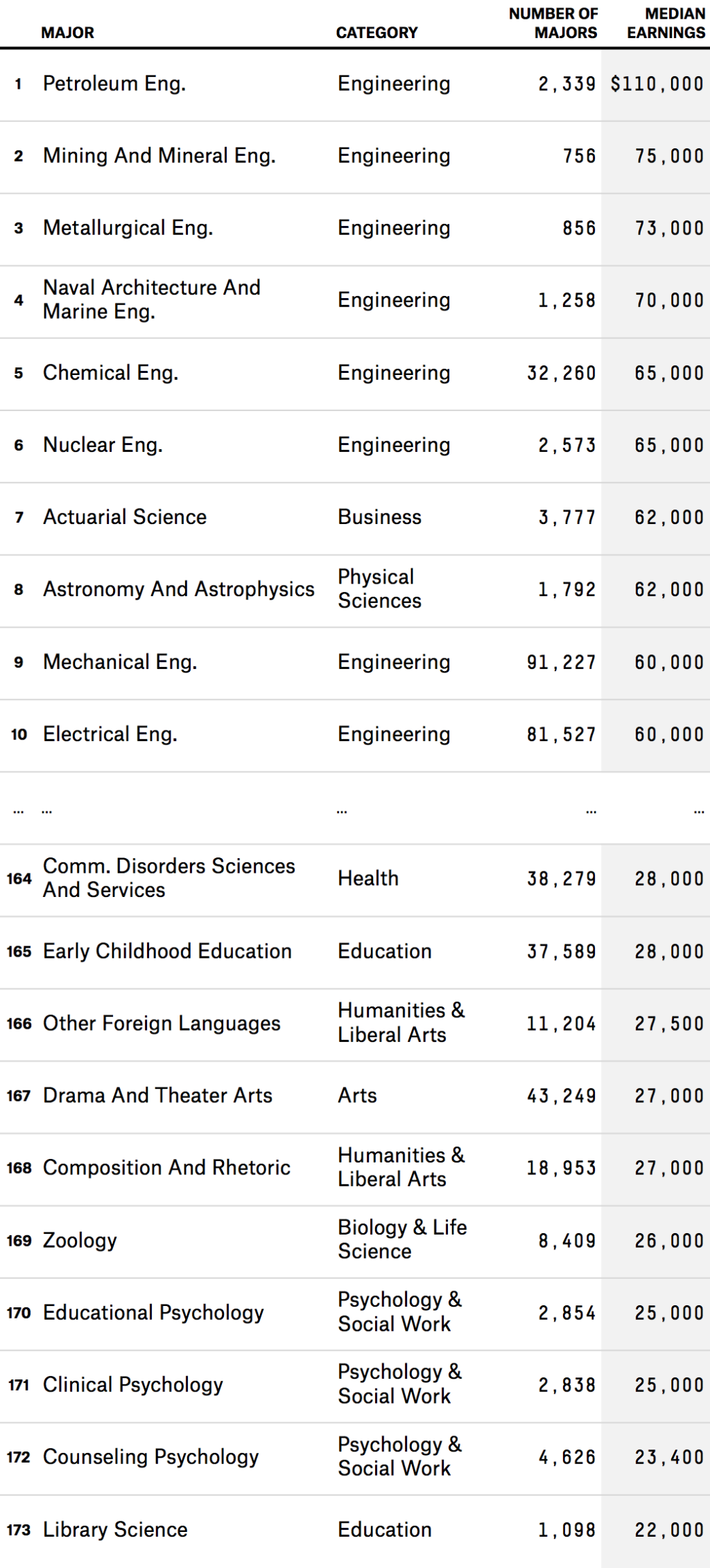The economic value of college majors
While the return on value of a college degree is at an all-time high, according to a recent analysis by FiveThirtyEight, not all degrees are created equal.
As we’ve written, the return on investment of a college degree depends on many factors, including the field of study, student’s debt level, and what the graduate does with the degree.
Large gaps in earnings between majors
According to the American Community Survey, the typical recent college graduate with a full-time job earns about $36,000 a year. The difference in earnings between some college degrees is quite staggering, however.
The Federal Reserve of New York found that the lowest-earning 25 percent of college graduates earn less than about half of high school graduates, a sign that these graduates are in jobs that may not even require a college degree. And that’s not even considering that students with only a high school degree had four extra years to make money while the college students were taking on debt.
The worst part is, this 25% doesn’t even include the high percentage of college students who don’t graduate. According to the National Center for Education Statistics, less than 60 percent of full-time students who are enrolled in college for the first time graduate within six years.
As Ben Cassleman of FiveThirtyEight puts it, these students often end up with the “worst of both worlds: saddled with debt, but with no degree to help their job prospects.”
Consider likelihood of graduating when choosing a major
With underemployment or unemployment a rising problem for college graduates and Americans at large, Cassleman says that students need to carefully consider their likelihood of graduating and future plans when deciding on both a college and major.
A Petroleum Engineering degree, with its $110,000 starting salary, may sound ideal, but if you lack the interest and/or ability to finish the degree, you’ll be worse off than if you had graduated with a less lucrative degree in a field you enjoy.
Today’s college students, then, need to choose a major that maximizes their chances of graduating, and minimizes their chances of ending up in that bottom 25 percent, where they would have been better off skipping college, at least financially.
The highest- and lowest-paying college majors
We don’t advocate most students skip college due to all of the research showing that college is worth the investment, and even for jobs that would not normally require a college degree, employers are more likely to hire college graduates.
We are, however, big advocates of being financially prudent and avoiding debt, especially if the student is likely to enter a low-paying field after graduation.
To better understand the differences in post-graduation earnings by major, check out the chart below, or head to FiveThirtyEight to use their interactive tool to find out how majors that aren’t listed below rank.
choosing a college, choosing a major, college costs, college major, college ROI, college value, economy, return on investment

